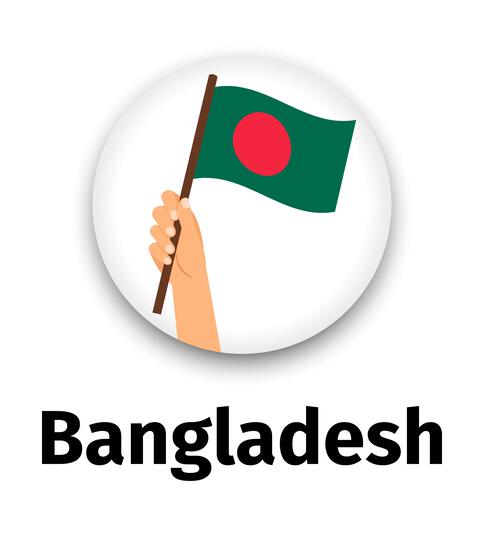Citizen Proposal to Esteemed Interim Government of Bangladesh
1. Vision for a New Bangladesh
Objective: To create a state where unity, inclusivity, and
dignity define our national identity.
Vision Statement:
A New Bangladesh where every citizen—regardless of creed, caste,
gender, or socioeconomic status—lives with equal rights, mutual respect, and
shared pride in a nation governed by justice and transparency. This vision
prioritizes dismantling systemic oppression, amplifying marginalized voices,
and establishing Bangladesh as a global model of participatory democracy.
Key Additions:
Explicitly mention gender equality, religious minorities
(e.g., Hindus, indigenous communities), and vulnerable groups (e.g., Dalits,
climate refugees).
Link the vision to global frameworks (e.g., UN Sustainable
Development Goals, Universal Declaration of Human Rights).
2. Abolishing Authoritarian Practices in Political Parties
Objective: Ensure parties operate democratically,
transparently, and free from coercion.
Enhanced Proposal-A:
1. Legally Mandated Internal Democracy:
- Require parties to
adopt constitutions that codify ‘open elections’ for leadership roles (e.g., secret
ballots for all members).
Ban financial transactions for positions; impose penalties
(e.g., deregistration, fines) for violations.
Establish Independent Party Audit Committees (IPAC)
to oversee compliance, with 30%
representation from women and minorities.
2. Transparent Financial Disclosure:
Mandate quarterly public reports on funding sources and
expenditures, audited by the National Human Rights Commission (NHRC).
Cap donations from private entities to prevent undue
influence.
3. Anti-Corruption Mechanisms:
Create a National
Political Ethics Board (NPEB) with prosecutorial powers to investigate
corruption, vote-buying, and intimidation.
Guarantee anonymity and legal protection for whistleblowers
through a dedicated hotline and digital portal.
3. Legislative Reforms for Accountability:
Objective: Strengthen legal frameworks to protect rights and
ensure party accountability.
Strengthened Proposal-B:
1. Political Party Accountability Act (PPAA):
Require parties to publish annual reports on membership
demographics, policy decisions, and financial audits.
Tie state funding for parties to comply with transparency
standards.
2. Whistleblower Protection Laws:
Criminalize
retaliation against whistleblowers; provide relocation and financial support
for those at risk.
Partner with NGOs like
Transparency International Bangladesh for third-party monitoring.
3. Citizen Grievance Redressal Mechanism:
Establish regional ombudsman offices to handle complaints
against political actors, with a 60-day resolution mandate.
Integrate grassroots
platforms (e.g., mobile apps, community radio) for rural accessibility.
4. Inclusivity and Meritocracy in Political Participation:
Objective: Democratize access to leadership roles within parties.
Enhanced Proposal-C:
1. Eliminate Financial Barriers:
Legally prohibit
"seat-selling"; introduce criminal charges for violators.
Fund leadership
training programs for underrepresented groups (e.g., women, minorities,
youth).
2. Quota Systems with Sunset Clauses:
Reserve 25% of party
leadership roles for women, 15% for ethnic/religious minorities, and 10% for
youth (<35 years).
Phase out quotas over
15 years, contingent on progress toward equitable representation.
3. Merit-Based Advancement:
Develop standardized
competency assessments (e.g., public policy exams, and community service track
records) for leadership roles.
5. Electoral Reforms for Fair Representation:
Objective: Restore trust in elections through equity and
accessibility.
Expanded Proposal-D:
1. Public Campaign Financing:
Allocate state funds
to candidates via a Democracy Equity Fund, prioritizing women, minorities, and candidates from
low-income backgrounds.
Ban private donations
exceeding 1% of the national per capita income.
2. Anti-Vote-Buying Measures:
Deploy biometric voter verification and blockchain-based vote
tracking to deter fraud.
Partner with local NGOs for voter education on ethical voting
practices.
3. Low-Cost Online Campaign Platform:
Develop a
government-hosted digital platform with free access for verified
candidates.
Provide offline alternatives (e.g., printed pamphlets,
community debates) for rural areas with limited internet.
6. Constitutional Safeguards
Against Division:
Objective: Institutionalize unity and punish divisive practices.
Revised Proposal-E:
1. Constitutional Ban on Hate Speech:
Define hate speech as
"incitement to violence or discrimination based on religion, ethnicity,
or gender."
Establish a High
Court Tribunal to adjudicate violations, ensuring due process.
2. National Unity Commission (NUC):
Empower the NUC
to mediate conflicts, conduct peace education campaigns, and monitor social
media for divisive rhetoric.
Include
representatives from minority communities, civil society, and academia.
3. Civic Duty Clause:
Mandate peace
education in school curricula and require public officials to take annual unity
pledges.
Conclusion: A Call to Collective Action:
This proposal outlines a roadmap to transform Bangladesh into
a democratic beacon where power serves the people, not the privileged.
By dismantling authoritarian structures, enforcing accountability, and centring
marginalized voices, we can rebuild trust in governance and secure a future
defined by justice and unity.
Urgent Next Steps:
Form a cross-party National Reform Task Force to draft
legislation.
Mobilize international allies (e.g., UN, EU) for technical
and financial support.
Launch grassroots awareness campaigns to rally public
backing.
Together, we can reclaim democracy.
Presented By:
Minhaz
Samad Chowdhury
Focuses
on- State Violence against and
Land Rights of Minorities in Bangladesh.







No comments:
Post a Comment
Please validate CAPTCHA